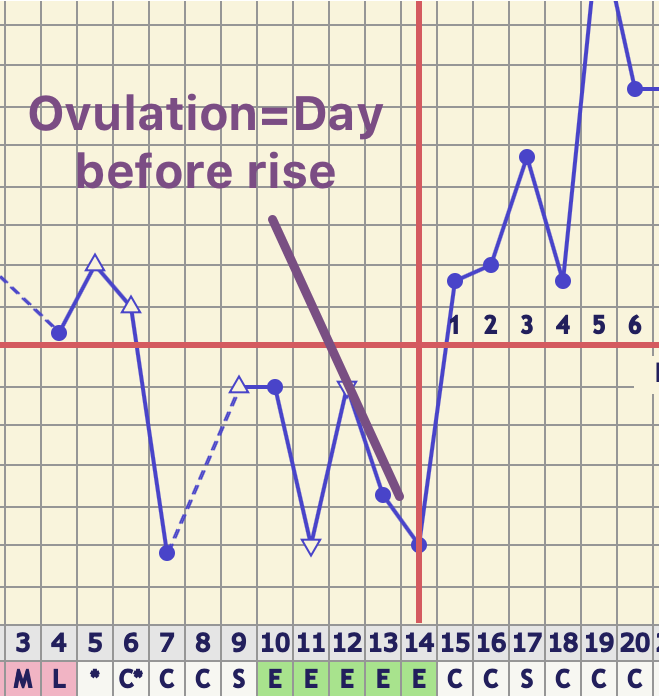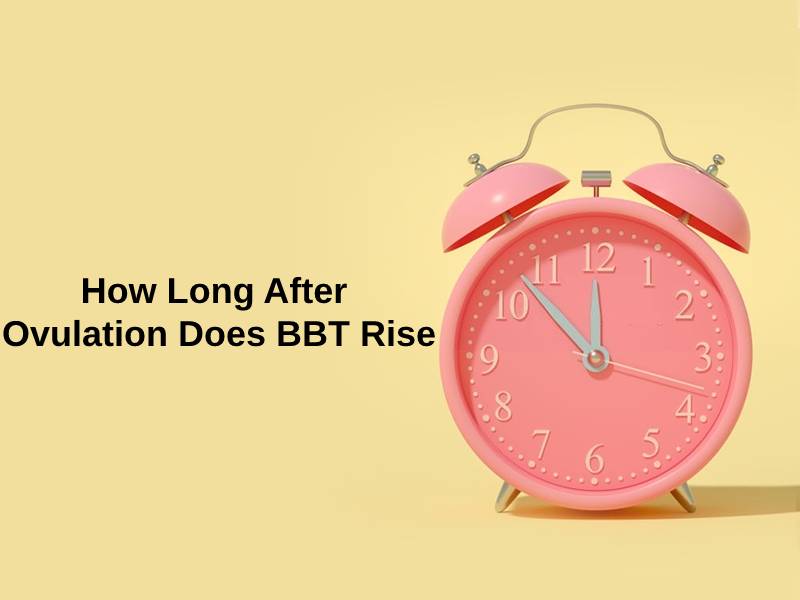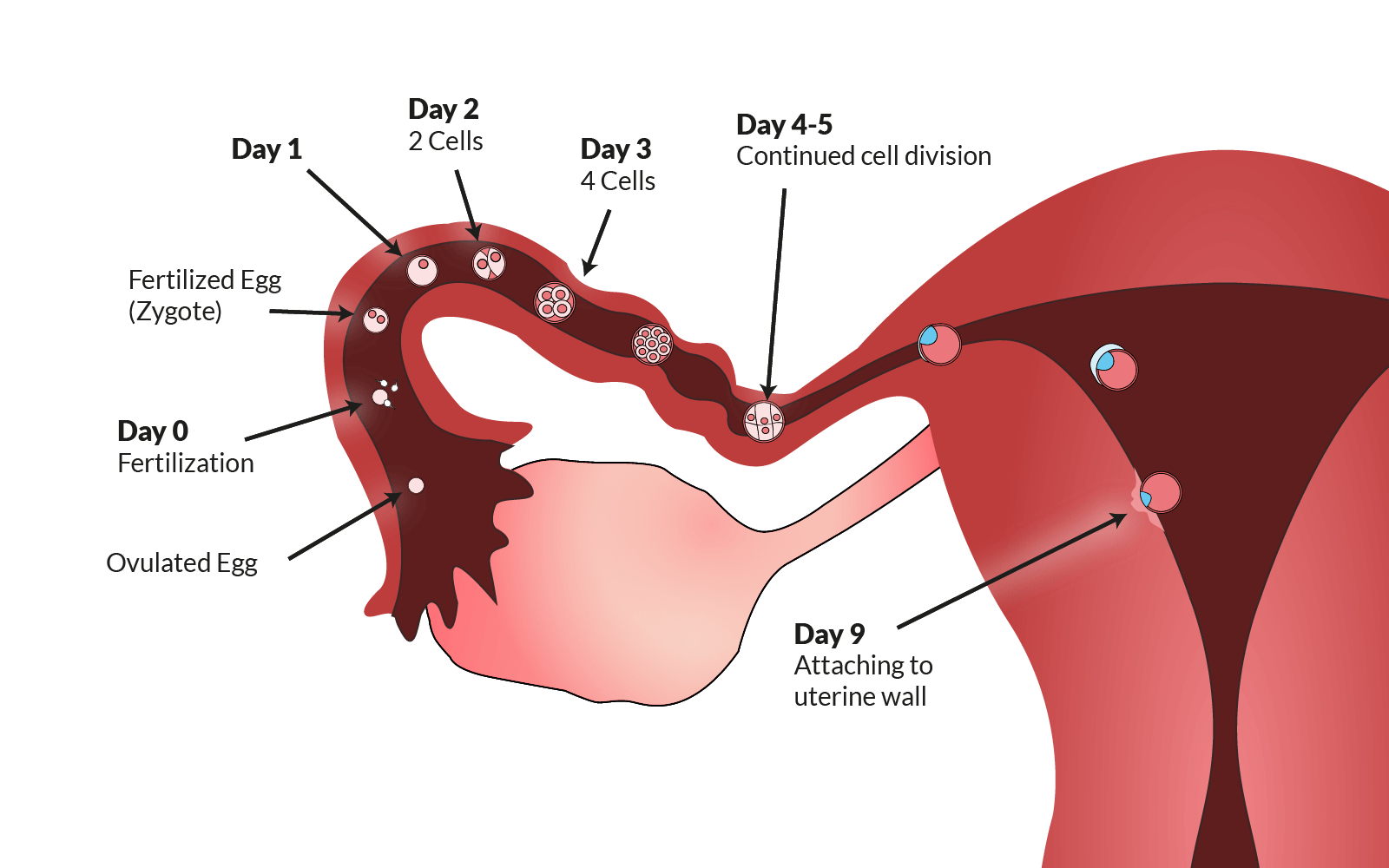Bbt Dropping After Ovulation
Bbt Dropping After Ovulation - Usually, a dropping temperature is a sign that one’s period is coming or has already started. What does a drop in bbt after ovulation mean? (of course, not getting your period is another sign of pregnancy!) Once you start your period, your bbt will probably drop and stay down for however long your period lasts. Typically, after you ovulate, your bbt stays elevated for several days. The bbt drop after ovulation is a natural occurrence influenced by hormonal changes in the menstrual cycle. In the second case, a decrease in bbt occurs due to implantation of the embryo, with hormonal imbalance, or before the beginning of the period. Discover the reasons why the basal body temperature (bbt) might unexpectedly drop after ovulation. If you track your bbt and notice that the rise in your basal body temperature after ovulation lasts beyond when you'd normally get your period, you may be pregnant. The basal body temperature can drop before (a rise in estrogen) and after ovulation.
In the second case, a decrease in bbt occurs due to implantation of the embryo, with hormonal imbalance, or before the beginning of the period. If you track your bbt and notice that the rise in your basal body temperature after ovulation lasts beyond when you'd normally get your period, you may be pregnant. Once you start your period, your bbt will probably drop and stay down for however long your period lasts. Usually, a dropping temperature is a sign that one’s period is coming or has already started. The bbt drop after ovulation is a natural occurrence influenced by hormonal changes in the menstrual cycle. Typically, after you ovulate, your bbt stays elevated for several days. (of course, not getting your period is another sign of pregnancy!) The basal body temperature can drop before (a rise in estrogen) and after ovulation. What does a drop in bbt after ovulation mean? Discover the reasons why the basal body temperature (bbt) might unexpectedly drop after ovulation.
Typically, after you ovulate, your bbt stays elevated for several days. Discover the reasons why the basal body temperature (bbt) might unexpectedly drop after ovulation. (of course, not getting your period is another sign of pregnancy!) In the second case, a decrease in bbt occurs due to implantation of the embryo, with hormonal imbalance, or before the beginning of the period. What does a drop in bbt after ovulation mean? If you track your bbt and notice that the rise in your basal body temperature after ovulation lasts beyond when you'd normally get your period, you may be pregnant. Usually, a dropping temperature is a sign that one’s period is coming or has already started. The basal body temperature can drop before (a rise in estrogen) and after ovulation. Once you start your period, your bbt will probably drop and stay down for however long your period lasts. The bbt drop after ovulation is a natural occurrence influenced by hormonal changes in the menstrual cycle.
How To Detect Ovulation On Bbt Chart Chart Walls
Usually, a dropping temperature is a sign that one’s period is coming or has already started. What does a drop in bbt after ovulation mean? Typically, after you ovulate, your bbt stays elevated for several days. If you track your bbt and notice that the rise in your basal body temperature after ovulation lasts beyond when you'd normally get your.
How Long After Ovulation Does BBT Rise (And Why)?
Discover the reasons why the basal body temperature (bbt) might unexpectedly drop after ovulation. The bbt drop after ovulation is a natural occurrence influenced by hormonal changes in the menstrual cycle. If you track your bbt and notice that the rise in your basal body temperature after ovulation lasts beyond when you'd normally get your period, you may be pregnant..
BBT help is this a start of a triphasic? I haven’t got a positive
Usually, a dropping temperature is a sign that one’s period is coming or has already started. If you track your bbt and notice that the rise in your basal body temperature after ovulation lasts beyond when you'd normally get your period, you may be pregnant. The bbt drop after ovulation is a natural occurrence influenced by hormonal changes in the.
Progesterone Levels after Ovulation / BBT chart pic BabyCenter
(of course, not getting your period is another sign of pregnancy!) If you track your bbt and notice that the rise in your basal body temperature after ovulation lasts beyond when you'd normally get your period, you may be pregnant. Discover the reasons why the basal body temperature (bbt) might unexpectedly drop after ovulation. In the second case, a decrease.
How long after ovulation does BBT (Basal Body Temperature) rise? The
The basal body temperature can drop before (a rise in estrogen) and after ovulation. Discover the reasons why the basal body temperature (bbt) might unexpectedly drop after ovulation. (of course, not getting your period is another sign of pregnancy!) Typically, after you ovulate, your bbt stays elevated for several days. The bbt drop after ovulation is a natural occurrence influenced.
How long after ovulation does BBT (Basal Body Temperature) rise? The
Usually, a dropping temperature is a sign that one’s period is coming or has already started. Once you start your period, your bbt will probably drop and stay down for however long your period lasts. Typically, after you ovulate, your bbt stays elevated for several days. (of course, not getting your period is another sign of pregnancy!) Discover the reasons.
Ovulation. What you need to know to increase your chances of pregnancy.
Usually, a dropping temperature is a sign that one’s period is coming or has already started. Discover the reasons why the basal body temperature (bbt) might unexpectedly drop after ovulation. (of course, not getting your period is another sign of pregnancy!) The basal body temperature can drop before (a rise in estrogen) and after ovulation. In the second case, a.
BBT drop day after 'ovulation'
(of course, not getting your period is another sign of pregnancy!) In the second case, a decrease in bbt occurs due to implantation of the embryo, with hormonal imbalance, or before the beginning of the period. What does a drop in bbt after ovulation mean? The bbt drop after ovulation is a natural occurrence influenced by hormonal changes in the.
How long after ovulation does BBT (Basal Body Temperature) rise? The
What does a drop in bbt after ovulation mean? Typically, after you ovulate, your bbt stays elevated for several days. Once you start your period, your bbt will probably drop and stay down for however long your period lasts. If you track your bbt and notice that the rise in your basal body temperature after ovulation lasts beyond when you'd.
How Long After Ovulation Does BBT Rise?
What does a drop in bbt after ovulation mean? Once you start your period, your bbt will probably drop and stay down for however long your period lasts. The bbt drop after ovulation is a natural occurrence influenced by hormonal changes in the menstrual cycle. Typically, after you ovulate, your bbt stays elevated for several days. Discover the reasons why.
(Of Course, Not Getting Your Period Is Another Sign Of Pregnancy!)
The bbt drop after ovulation is a natural occurrence influenced by hormonal changes in the menstrual cycle. Once you start your period, your bbt will probably drop and stay down for however long your period lasts. If you track your bbt and notice that the rise in your basal body temperature after ovulation lasts beyond when you'd normally get your period, you may be pregnant. The basal body temperature can drop before (a rise in estrogen) and after ovulation.
What Does A Drop In Bbt After Ovulation Mean?
Usually, a dropping temperature is a sign that one’s period is coming or has already started. In the second case, a decrease in bbt occurs due to implantation of the embryo, with hormonal imbalance, or before the beginning of the period. Discover the reasons why the basal body temperature (bbt) might unexpectedly drop after ovulation. Typically, after you ovulate, your bbt stays elevated for several days.









